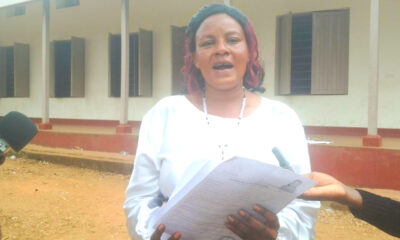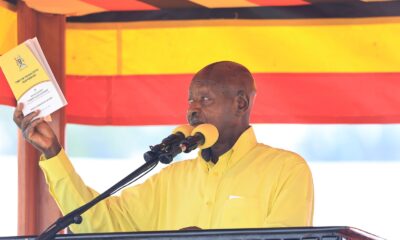Politics
Civil Society Coalition Demands Bold Action Against Corruption, Warns Against ‘Kaki Envelopes’ and Election Financing Abuses
A broad coalition of civil society organisations has sounded a renewed alarm over Uganda’s persistent corruption challenges, calling for sweeping legislative and institutional reforms to safeguard public resources and restore citizen trust in governance.
The group, comprising key watchdogs such as the Anti-Corruption Coalition Uganda (ACCU), Alliance for Finance Monitoring (ACFIM), Civil Society Budget Advocacy Group (CSBAG), ActionAid International Uganda (AAIU), Uganda Debt Network (UDN), and Transparency International Uganda (TIU), issued a joint statement reaffirming their commitment to advancing transparency, accountability, and the efficient use of public funds.
While acknowledging the Ugandan government’s stated intentions to combat corruption through increased penalisation of tax evasion, investment in digital systems to reduce human discretion, and expansion of judicial infrastructure, the coalition was critical of certain practices that continue to erode public trust.
‘Kaki Envelopes’ Undermining Accountability
The organisations took particular aim at the informal distribution of presidential handouts—popularly referred to as “kaki envelopes” labelling them a threat to institutional integrity and political accountability.
“These informal disbursements perpetuate irregular campaign financing, weaken institutional performance, and contribute to inflated project costs and misallocation of critical resources,” the statement read. “The justification of these handouts on budgetary grounds sends a dangerous message, normalising patronage as a legitimate fiscal tool.”
Corruption and the Cost of Politics
The coalition highlighted the corrosive impact of unregulated campaign spending, warning that unchecked financing is directly fueling electoral corruption.
“Evidence from ACFIM and other research institutions confirms a direct link between unchecked campaign spending and corrupt practices, including voter bribery,” the statement noted. “This persists despite prohibitions under the Presidential Elections Act and Parliamentary Elections Act of 2005, both amended to address this very issue.”
They warned that without decisive action to curb illicit campaign financing, efforts to tackle systemic corruption will remain cosmetic.
Uganda’s ballooning public debt—now pegged at UGX 116 trillion—was also a focal point of concern. The organisations noted that UGX 27 trillion has been earmarked for debt servicing in the FY2025/26 national budget, attributing a significant portion of these pressures to corruption.
“Irregular procurement, inflated project costs, and diversion of funds during politically sensitive periods have resulted in massive fiscal leakages and stalled development,” the group warned.
Demands: Campaign Finance Law, Witness Protection, and Institutional Independence
To break the cycle of political corruption, the coalition outlined key demands, starting with legislative reform. These include:
- Enactment of a Campaign Finance Law: To set strict spending limits, mandate public reporting, and penalise illicit funding practices.
- Passage of a Witness Protection Law: To ensure the safety of whistleblowers and key witnesses in anti-corruption cases.
In addition, the coalition called for increased, equitable funding to critical accountability institutions like the Office of the Auditor General, Inspectorate of Government (IG), and Office of the Director of Public Prosecutions (ODPP). “These bodies must be free to act without political interference,” the statement emphasised.
The coalition also demanded a depoliticisation of fiscal policy, particularly during election cycles, adherence to public investment protocols, and enforcement of debt ceilings.
They concluded with a direct appeal to the public: “We call upon the citizens of Uganda to reject vote-buying by political opportunists, report corruption wherever it occurs, and elect candidates who embody integrity and service.”
As the country approaches a new electoral season, the coalition’s message is clear: without confronting the nexus of politics and corruption, sustainable development and democracy in Uganda will remain elusive.
Comments



























